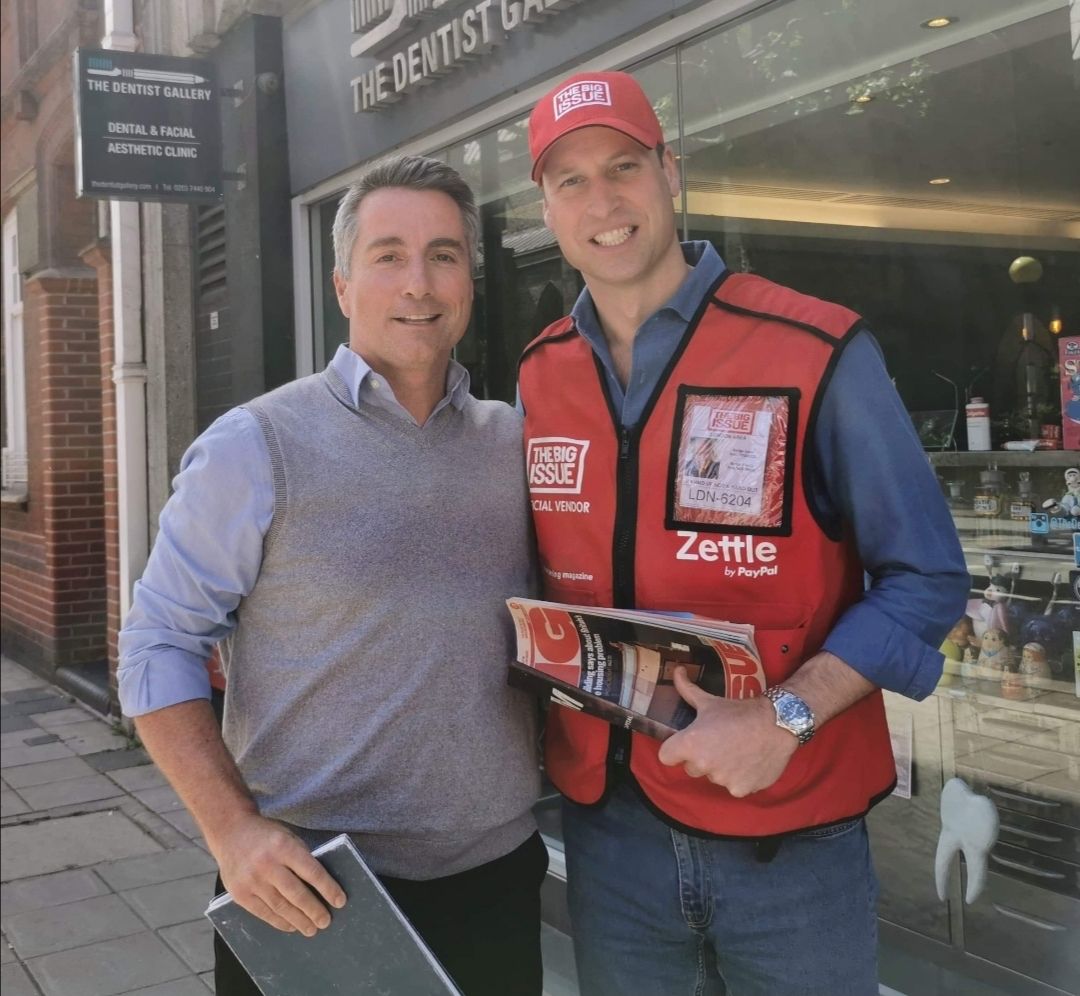He may be the future King of England, but for a day Prince William took to the streets undercover to sell magazines to support people who are homeless.

The Duke of Cambridge traded in his tailored suit for a red vest, baseball cap and nametag this week as he hawked the latest copy of The Big Issue magazine – a publication that is usually sold by homeless individuals to help them earn income.
In a LinkedIn post with a photograph of William, Matthew Gardner, a retired police officer, said his brother-in-law, Richard Hannant, had spotted William, 39, and enjoyed a “private moment with our future King who was humble and working quietly in the background, helping the most needy.”
“The finale to this unique occasion was when Prince William asked my brother-in-law if he wanted to buy the ‘Big Issue’, to which he replied ‘I have no change’. At this point William produced a mobile card machine. You cannot teach that.”
William, much like his late mother Princess Diana, has been a longtime champion of the homeless community, serving as a patron of Centrepoint and backing The Passage homeless centre – both local charities.
It was a down-to-earth return to royal work, having come fresh on the heels of the pomp and pageantry of Queen Elizabeth’s Platinum Jubliee last weekend, celebrating her 70 years on the throne.
Taxi driver Neil Kramer also ran into the prince, posting a photo to his Instagram account.
“I was charging up my taxi on Rochester Row in Westminster when I was approached by a vendor who introduced himself as William and asked would I like to buy a copy of the Big Issue,” Kramer told the BBC.

Get daily National news
“When I realized who it was, I was a bit shocked but of course said yes.”
During an appearance on the BBC special A Berry Royal Christmas in 2019, William told host Mary Berry that it’s important his children understand the causes he supports.
“On the school run already … whenever we see someone who is sleeping rough on the street I talk about it and I point it out and I explain,” William said.
“And they are all very interested,” he added. “They are like: ‘Why can’t they go home?'”
— with a file from Reuters














Comments
Want to discuss? Please read our Commenting Policy first.